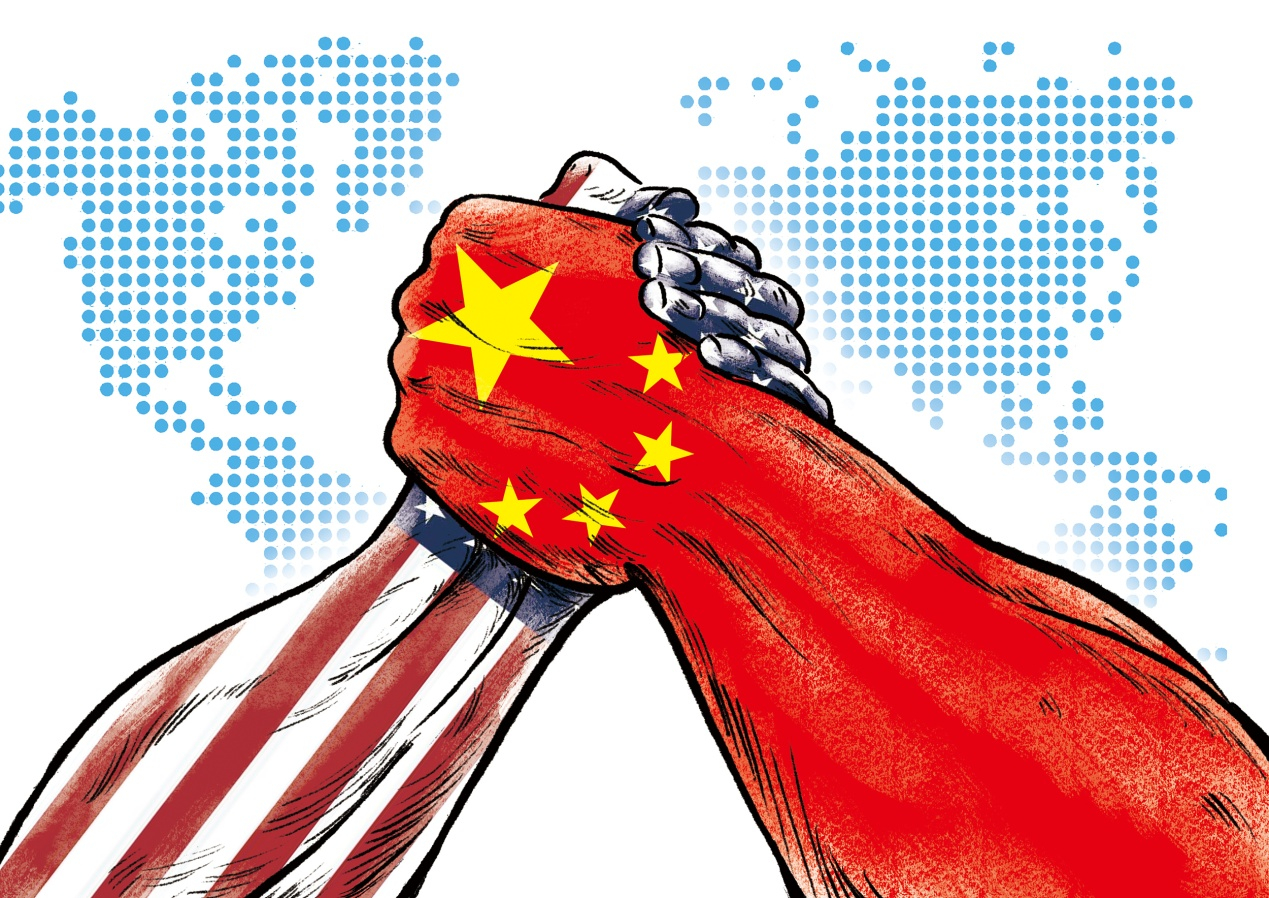
(Photo: VCG)
The Trump administration has launched the largest trade war in its history against China. For the latter, this is a war it is determined to win.
First, let’s make this clear. China has no choice but to fight back. Have you seen what happens to the poor kids who are bullied on the school playground? The more they recoil, the more they are taken advantage of.
An ancient Chinese saying goes: stop the use of force with weapons, stop a war with fighting. In the eyes of the Chinese government and the Chinese people, trade is negotiable, but bullying is not.
But China didn’t fight back until it was unavoidable. Facing the Trump team’s maximum pressure, the Chinese government has exercised maximum restraint. Since things heated up this spring, China remained calm, issued warnings, remained open to talks to reasonable demands, and refrained from firing the first shot, but all of this fell on deaf ears.
Only three rounds of negotiations were held between the two sides. Although China maintained that it was open to talks, President Trump resorted to unilateral measures. It was clear they were not interested in resolving the issue through talks.
Now the trade war is unfortunately on. And China is determined to win. How so?
For China, the Sino-US trade war is not about trade, it’s about the future of the nation. It’s clear that President Trump’s real target is China’s top-down approach to upgrade its industry and its economy. The Chinese people have the right to develop their economy and nation through legal and legitimate means.
If Chinese companies or practices are not in line with foreign laws when they go abroad, foreign governments can do what is necessary, but to deprive Chinese companies of their right to grow, that is not reasonable. It’s also something nobody can stop unless the Chinese people lose their collective purpose.
Secondly, China is not fighting alone. This is an economic world war that the US has launched against its allies, rivals and other economies: the EU, Japan, Canada, South Korea, Mexico, India, Russia, Turkey, and China.
They might have different political interests, but in terms of economics and trade, they share the same belief that the US policy is against established international rules and the US’s own undertakings in the past.
America’s tariffs on steel and aluminum, as well as its on-going investigations into national security risks posed by imported cars, have been drawing criticism from economies around the world under the framework of the World Trade Organization.
Seven economies including the EU, Norway, Mexico, Canada, India, China and Russia (+Switzerland on July 10) have lodged formal complaints against the US within the WTO.
Total retaliatory tariffs against US imports could reach 3.7 billion US dollars. The Sino-US trade war is not a war between two economies, but part of a global war between multilateralism and unilateralism.
Thirdly, the Sino-US trade war is not just a war about trade, but a comprehensive assault on China’s fundamental systems. The US wants to pressure China to abandon its socialist path of development where it plays an important part in the economic and social development of the country.
As a result, China could suffer some economic losses, but will not abandon its tools which have proven effective after 40 years of reform and opening-up. The Chinese systems and the Chinese people have been contributing to one-third of the world economic growth since 2002, and continue to do so.
The Chinese government and people are determined to win this battle however long and hard the struggle will be, even if that might result in a long-term headwind to its development. In addition, the door of China’s opening-up will not close.
It will open wider because it is in the interests of China to do so. China is doing its best to provide a more friendly environment for foreign businesses. We still have a long way to go but have confidence in ourselves. Patience pays.


